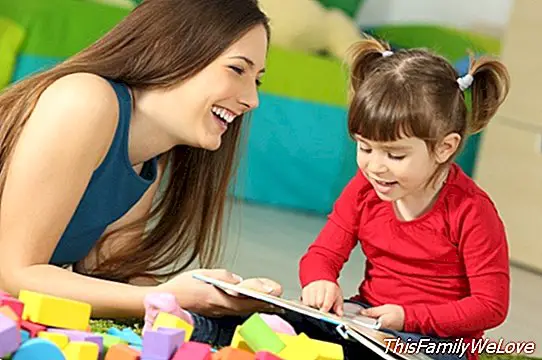The benefits of laughter in children's learning

Laugh It is an activity that is worthwhile for various reasons: it releases stress, creates indelible memories, makes us have a good time and also makes children learn faster. This is the conclusion reached by a group of researchers from the University of Pariss in one of his studies where he has proven the benefits of laughter in education.
One more reason to laugh every day since laughter is not just an expression of a feeling of happiness or euphoria. It is also an escape valve of stress as it has been pointed out before and that can be used to bet on new education policies both in school and in the home. A bet to put aside family quarrels if only to learn faster.
Feeling of reward
The researchers tried to check if the laughter could influence in some way the learning of the youngest from their earliest ages. For this, they used two groups of babies around 18 years old. The first ones were invited to observe an adult using a tool in a simple way, the second one was exposed to a person manipulating the same instrument but in a funny way in such a way as to provoke laughter in the children.
Almost 94% of the children who had laughed during the learning showed a greater knowledge of the use of the mentioned instrument. In the case of participants who watched a serious adult, only a 25% They showed some symptom of having learned something during the aforementioned lessons. Among the explanations, the mechanism of reward in the brain is presented.
When laughing, the brains of the children interpreted that from the use of this tool there would be something funny that would activate the circuits of dopamine. So internally, they were more attentive to learning since it could depend on the knowledge of a skill that provides a great benefit such as laughter.
Fostering laughter at home
Laughter is the food of the soul. At home you can cook with small activities:
- Any time is good to make children laugh. We can take advantage of trips, queues in the store, etc., to remember funny anecdotes, tell a joke, say some witty phrase ...
- That the parents show fun can surprise the children and suppose a great example for them: act like Romeo and Juliet with your wife or husband, put voices imitating certain characters or spend some joke at dinner.
- Although the jokes told by children do not have much grace, try to listen to them and laugh so that little by little they learn to let go. In addition, it is a good way for them to get used to speaking in public.
- Through good humor, we can enjoy simple and everyday things. Make a simple Sunday trip an adventure, enjoy the conversation or a dinner ...
- Teach the child to laugh at their own mistakes. Trips, spilling food or water on the table, it is better to laugh together and then apply a serene correction so that the next time is more attentive and does not happen again.
- Fosters good humor, but without passing. Try to make it clear that life is not laughing at all times. Some situations (visits, moments of rest) require knowing how to behave, just as there are serious conversations (for example, about studies).
- Propose to your children to organize a humor session in family gatherings in which they parody different characters or even family members. To make it more fun, you can record it on video and enjoy it all together at any other time.
Damián Montero




